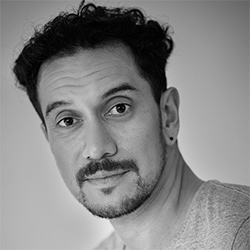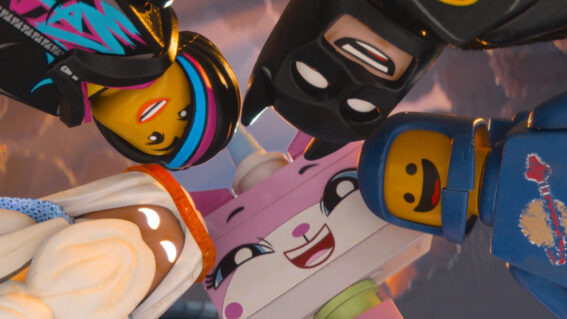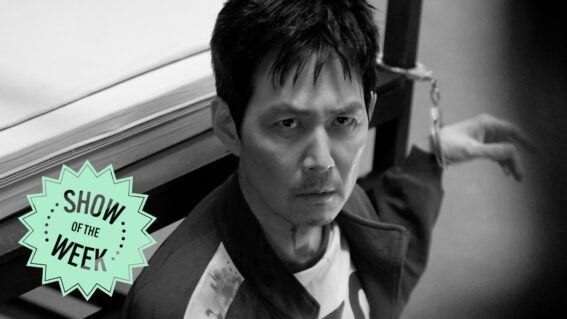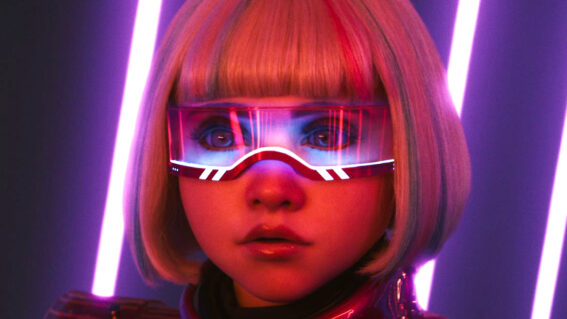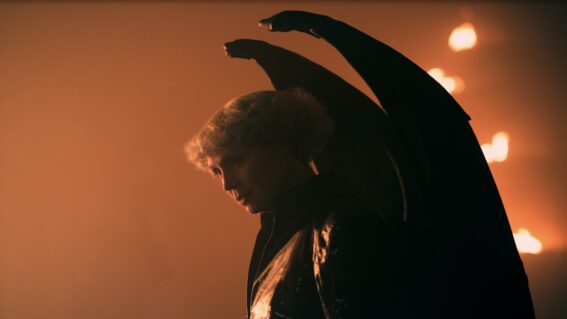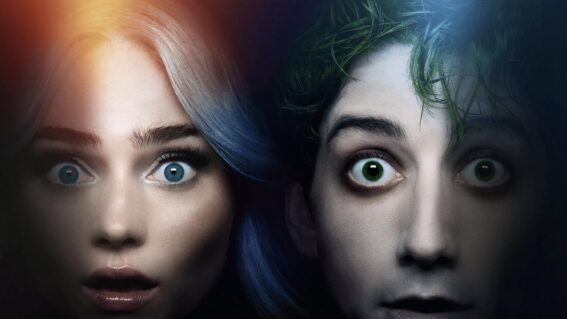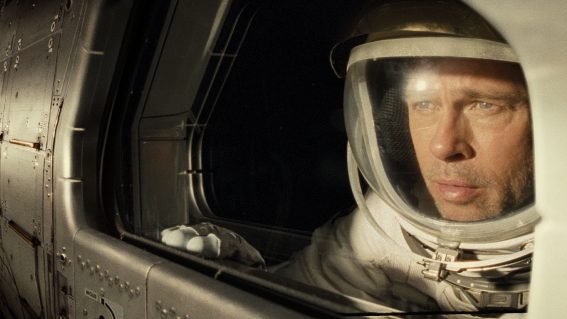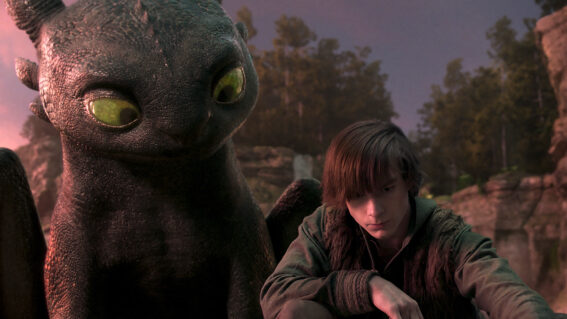Action-packed Halo series nails the sights and sounds of the iconic games
We take a peek under the helmet of the new live-action Master Chief, hearing from the series’ stars.
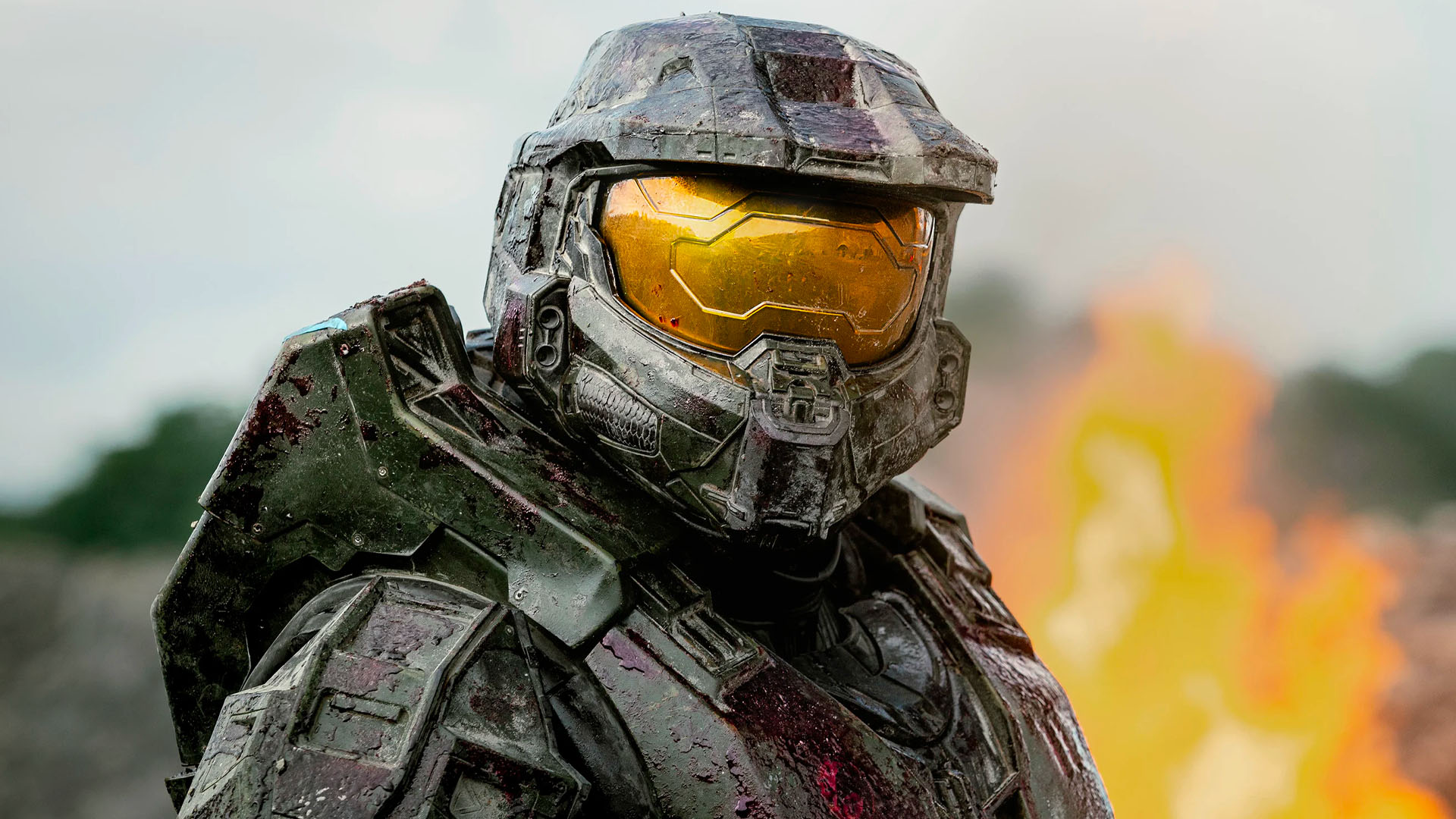
Iconic game Halo makes its way off the console in a new series bringing the Master Chief to life. James Nokise hears from the stars and producer—and lets us know what to expect from the long-awaited action/sci-fi adaptation.
THIS INTERVIEW HAS BEEN EDITED FOR LENGTH AND CLARITY
Few computer games have amassed the following that Halo has. The US$6.5b franchise started off back in 2001 as a simple launch game for the Xbox, Microsoft’s then-ambitious venture into the gaming console market. “Simple” possibly downplays one of the most stressful media launches in history.
Microsoft was relatively new to the industry. First Person Shooters, though now a major money maker in gaming, were hardly seen on consoles, and Bungie—the original creators of the series before it was taken over by 343 Industries—were relatively unknown. On top of that, being a launch title meant that the game had to be ready to go when the Xbox was. Staff apparently took to sleeping in their offices as the deadline approached. The pressure to succeed was immense.
Over twenty years later, it’s safe to say they pulled it off. The original Halo: Combat Evolved was a critical and commercial success, which spawned five more blockbuster games (Halo 5 did US$400m in its first week) plus an expanded universe of comics, cartoons, best selling novels, and now a live action TV series. Produced by Steven Spielberg’s Amblin Television, Halo launches after almost 8 years in development.
For the unfamiliar, Halo follows the adventures of the Master Chief, a futuristic super soldier (called Spartans) in the 26th century navigating intergalactic insurrections, alien invaders, biological terrors, artificial intelligence, and his own suppressed emotions. He wears green full body armour and doesn’t talk much. No one even knew his name (John 177) till the supporting books came out. The first game gave him a total of 23 lines and the armour was never removed. Easy for a lead in a computer game, but a bit more of a challenge in a TV show.
“I think there’s just a philosophical thing that happens when your face is taken away” says Pablo Schreiber (Orange is the New Black, American Gods), who plays Master Chief /John 177.
“When you’re not able to communicate in that way, one thing that happens just for free is that the audience tends to bring more of themselves into the equation.”
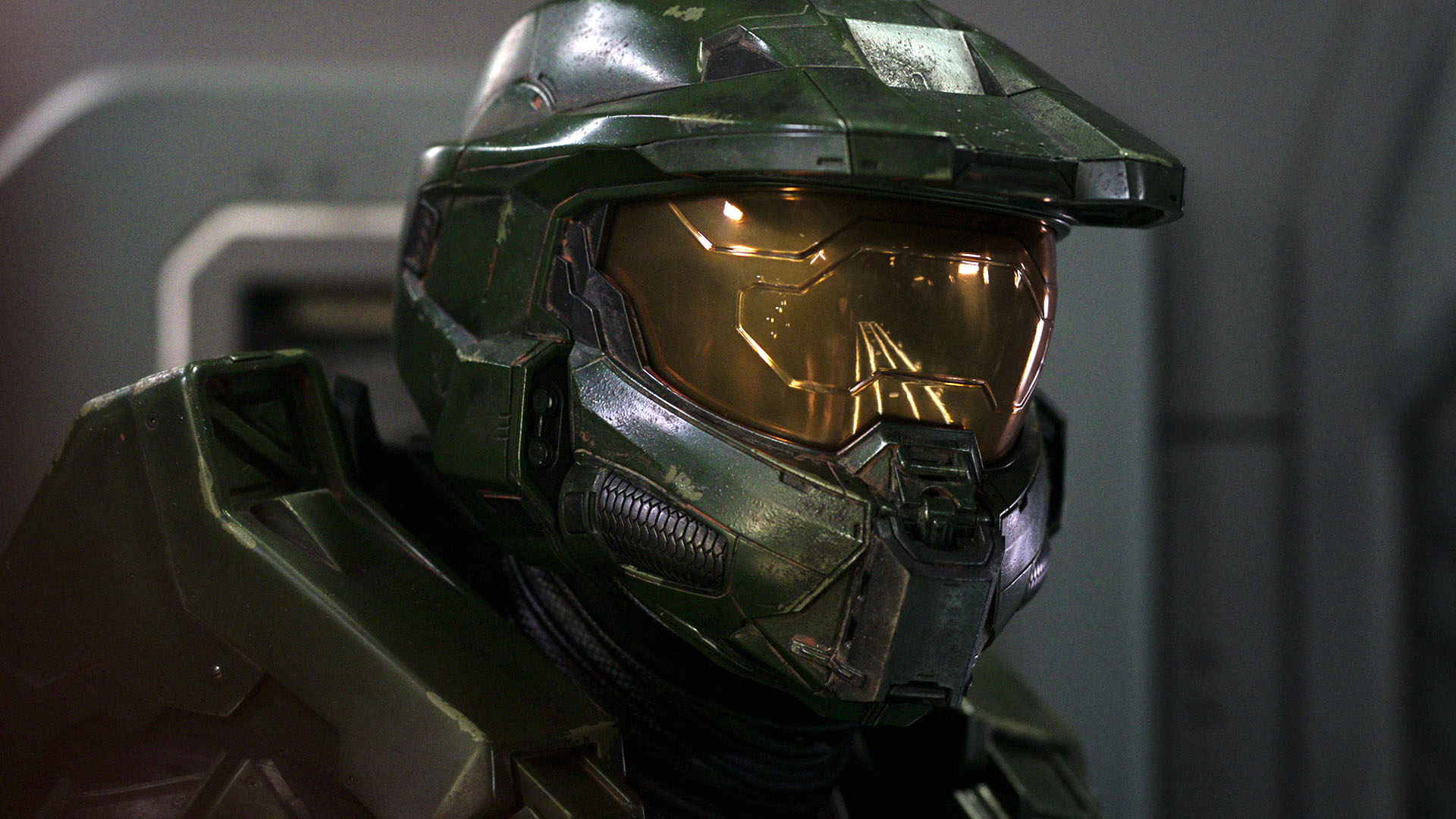
So, where does an actor start with preparing to play an iconic, faceless character?
“Going up to Seattle and getting a boot camp with 343 studios, who make the game, was my first stop,” Schreiber says. “And then they sent me away with a whole bunch of material for study. The biggest and most important part of that was the cinematics from the games…Every cinematic sequence that they’ve ever made, which really gives you an idea of the story in clear form. So I got to study the performance of Steve Downes—the legendary Steve Downes—who created the voice of the character. I’m a huge fan of what he was able to accomplish over the course of the last 20 years.”
When Master Chief first appears in Halo, he drops out of the sky, crashing the scene like something straight out of the games. The action sequences don’t just reference in-game cinematic angles, but the actual first person perspective of a shooting game. If that sounds a bit gimmicky, there is an actual narrative presented behind the angles, and the early focus on the helmet does eventually pay off.
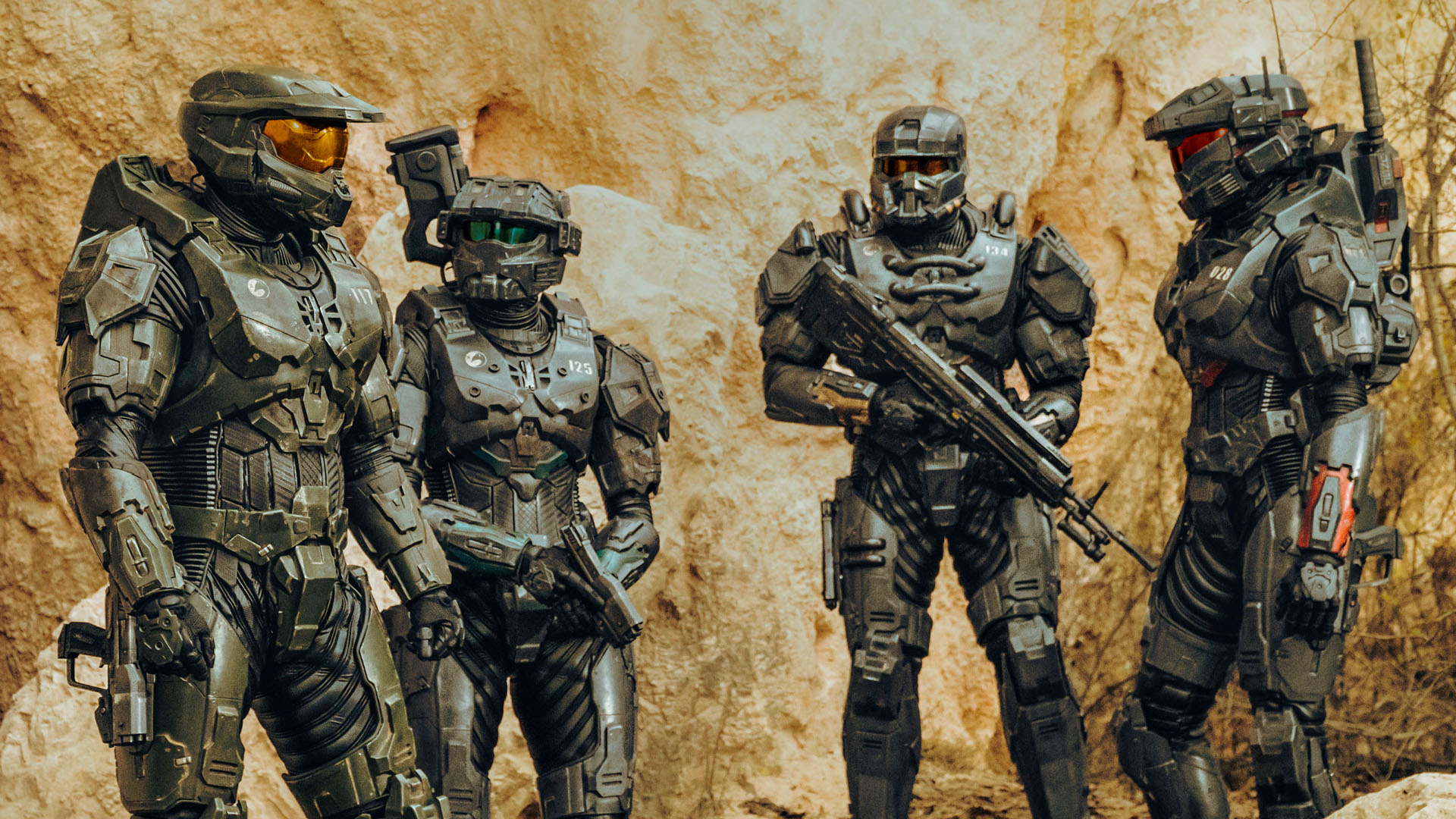
Producer Kiki Wolfkill, who also executive produced the game Halo 4, and is 343’s head of Halo transmedia, talked about converting games to screen: “The biggest challenge was that story has to come first, and that was the difference in creating this—we weren’t thinking about gameplay and story at the same time. It was all story.”
Schreiber acknowledges another issue: “Everybody who has ever played a Halo video game has imagined themselves as him [Master Chief]… With the casting announcement I started to get a sense of how much it meant to people, how much the franchise meant to people, how much the character meant to people, and really took that on as a responsibility to try to work as hard as I could, personally, to make sure that this was an experience that was going to feel pleasing for fans.”
“We very much looked at it as we want to serve the fans,” echoes Wolfkill. “We want them to be excited to see this universe they’ve never seen at this scope and scale of live action, and we wanted a new audience to be introduced to the things that we think are fundamental to Halo.”
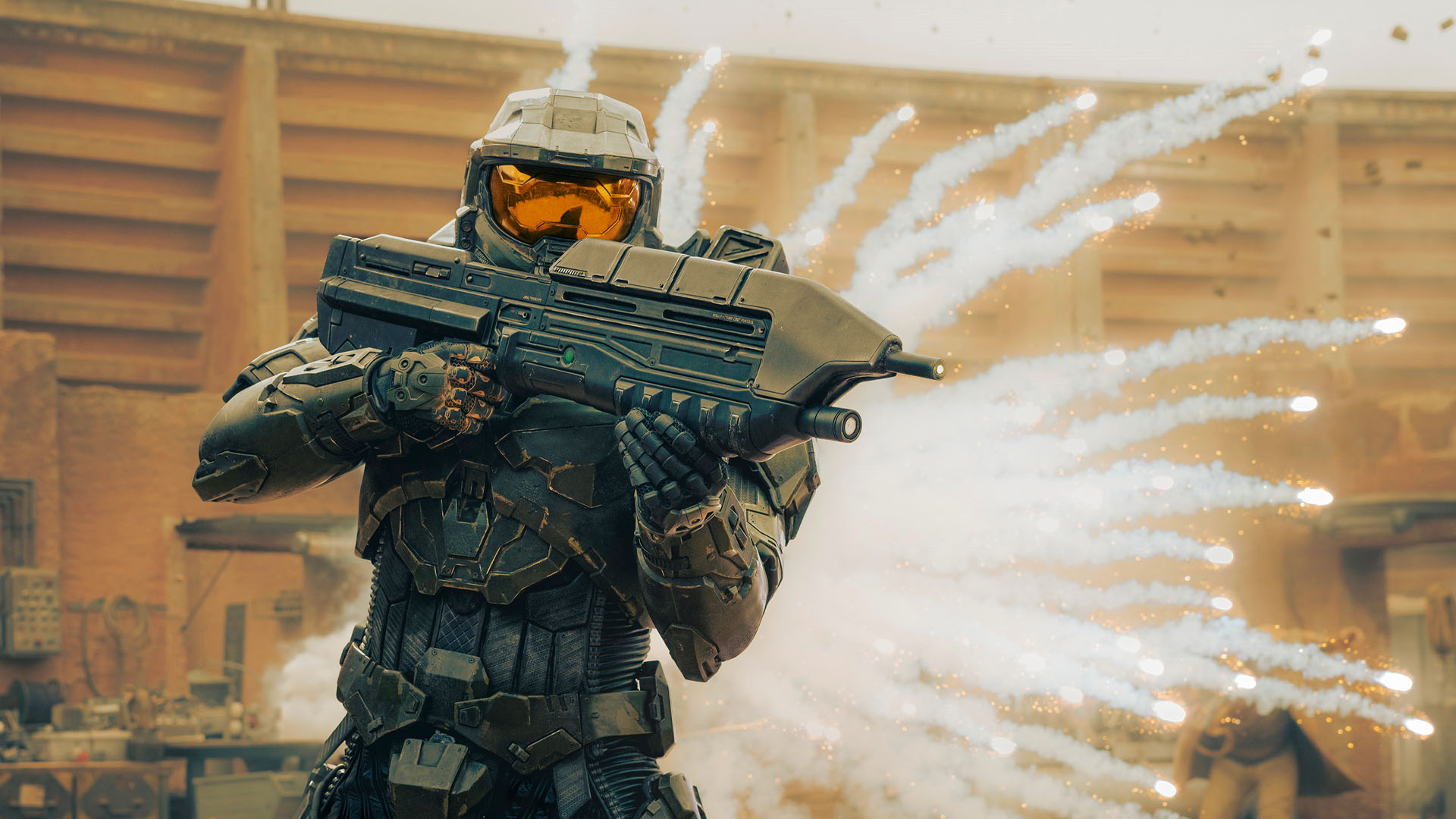
For fans of the games, the show has managed to nail both the sights and, just as importantly, the sounds of the gaming series. The violence of the show would probably have caused a commotion back in 2001, but isn’t anything out of place now. For those unfamiliar, think sci-fi cult classics like Babylon 5 and Firefly—futuristic technology anchored in human experiences—but with extra blood. For all the starships and advanced computers, there’s still dingy markets, and run-down sandy frontier posts.
If there is a face of Halo’s technology then it’s Dr. Catherine Halsey, played by Natascha McElhone (Californication, Designated Survivor), a scientific genius who’s big on ideas, if slightly sketchy on ethics.
“When I got the role I hung out with a guy who has actually clocked up three years, in hours, of Halo time—he’s obsessed with Halo—so it was lovely to kind of spend time with him, and get into his mindset, and why it matters so much to him”
That doesn’t mean she’ll be playing on Xbox Live anytime soon.
“I don’t think I’m a natural video gamer,” admits McElhone. “It’s a little bit of a mountain climb for me to kind of get in that zone, but I also was fascinated by the fact that so many people are looking at some of their lives through this portal of an active game. And it’s only one or two generations that have been doing this.”
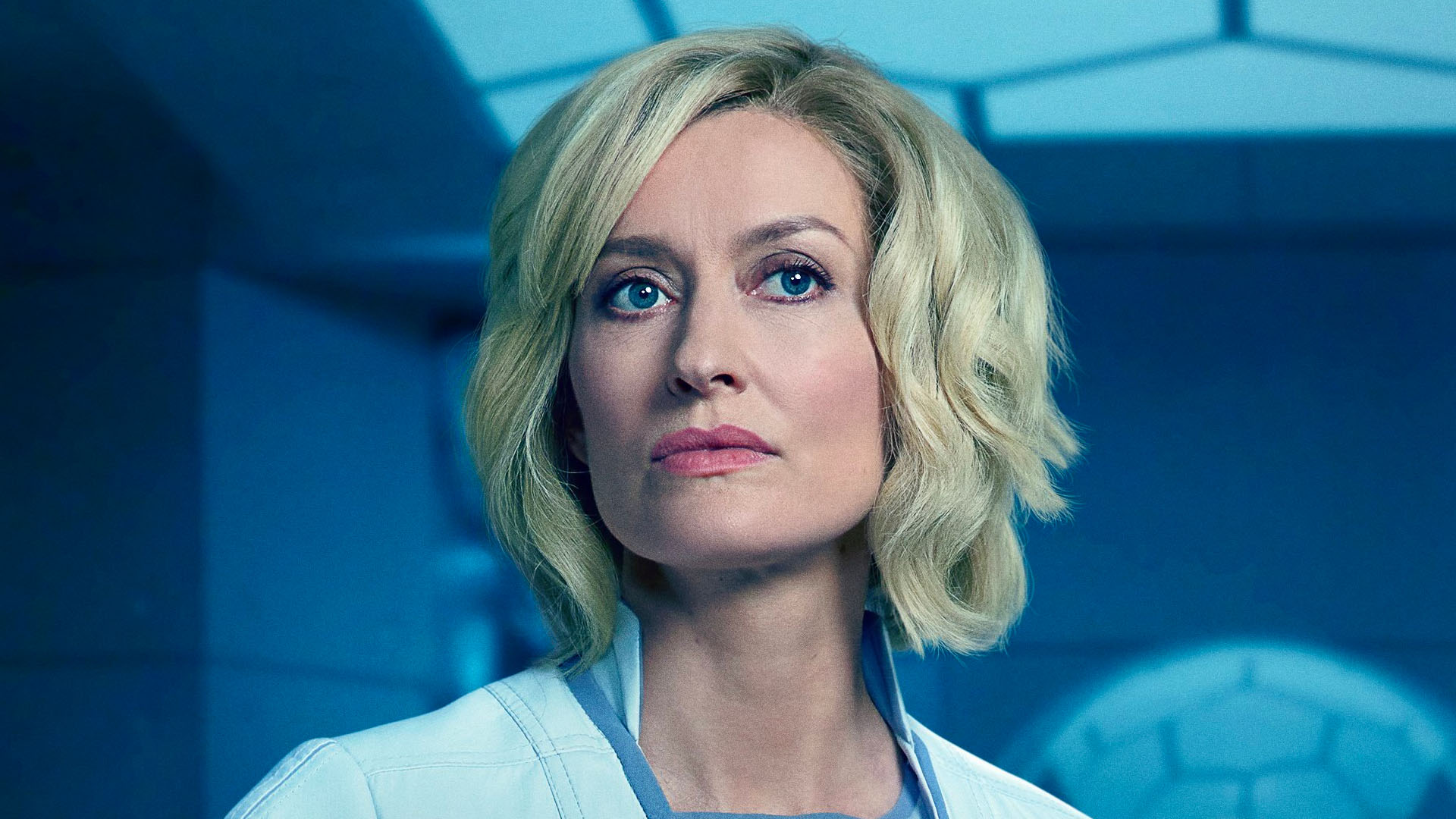
Producers approached McElhone to play the complicated Dr Halsey, whose ambitions for humanity result in the Spartan project and give her more of a motherly relationship with the Master Chief than her own daughter. These super soldiers though only come from painful, torturous medical procedures conducted on teenagers, resulting in emotional repression.
As Schreiber puts it: “The setup of our story is a soldier who’s in a very small box, who very slowly and gradually starts to encounter his own humanity, and learn about his own humanity and his history.”
Helping the Master Chief with these discoveries is Soren 66, a former Spartan who escaped after a horrific side-effect. The character isn’t actually from the games, but appears in the short story Pariah. He is played by veteran character actor, Bokeem Woodbine (Spider-Man: Homecoming, Ghostbusters: Afterlife). So is it fun being more of an unknown factor, while knowing you have a strong arc, in a series like this?
“Absolutely,” says Woodbine, “Absolutely without a doubt. I love standing on my own two feet, in my own space—in my own way. It just suits my personality to be my own man and to have that as a differentiating character, if you will, it’s fantastic.”
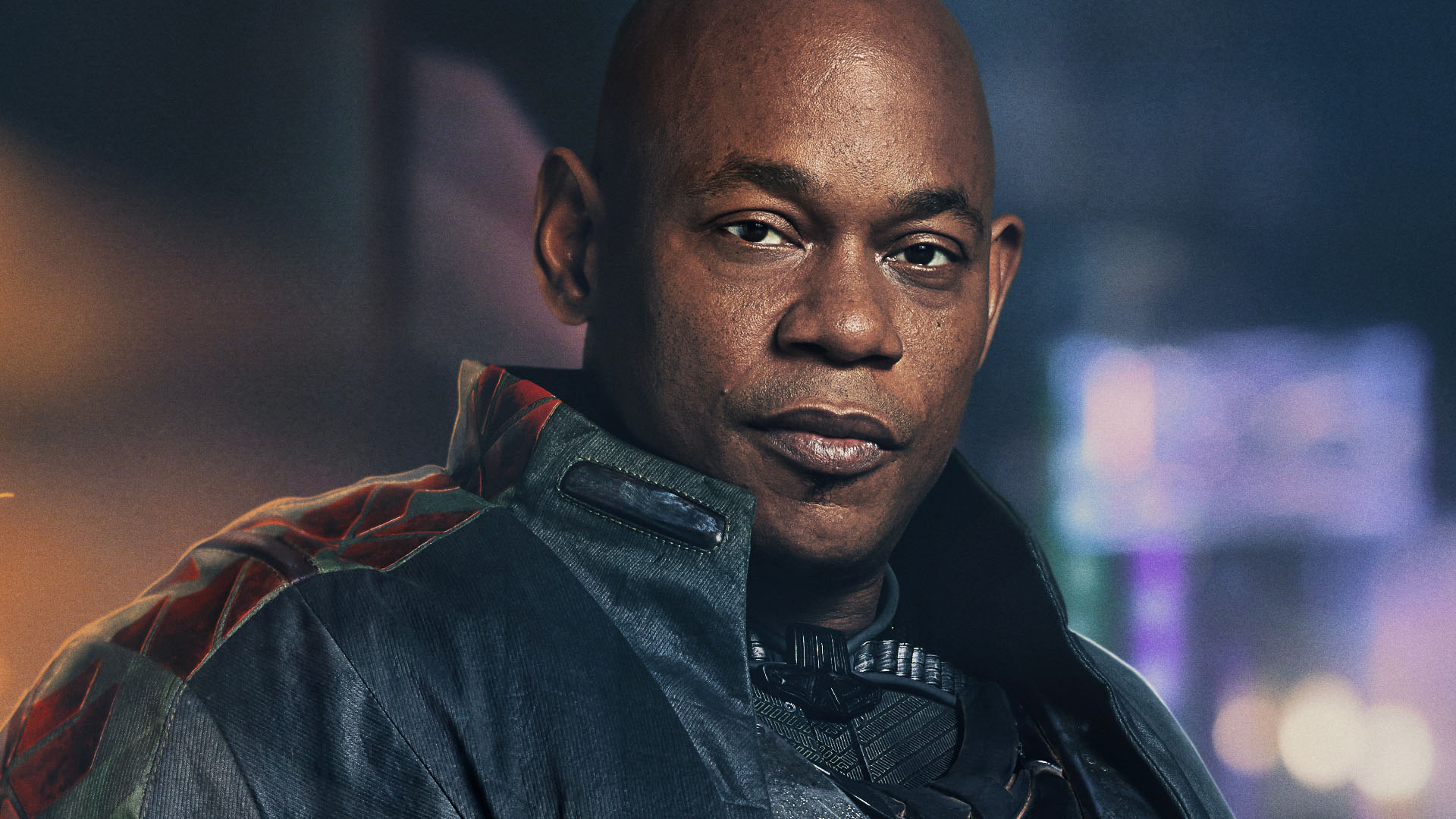
Woodbine actually had to be convinced to join Halo—but was glad he did.
“Halo for me is something that I always watched other people play. You know a lot of my friends in the early 2000’s were very serious ‘Halo Heads’, you know they had a very deep-seated need to play Halo… I had established myself as the guy who watches people play—and I cannot cross that line and play myself—so I did learn a lot about it. It’ s fun just to watch, I have to tell you. If you’ve never just sat there and watched people who are good at it play, it is just like a movie.”
Wolfkill reinforces that notion. “We looked at it as we’re making four feature films,” she says. “That was how we approached everything. We came out of season 1 so excited about all the things that we wanted to do in season 2, not unlike when you’re making a game.”
Viewers will get to see for themselves shortly, when the first episodes drop, if that balance between engaging a fresh audience and pleasing ‘Halo heads’ has been struck. The series already being renewed means there’s plenty of time for people to get to learn about the characters and science involved. The pressure is immense, but that’s nothing new.
Schreiber concludes: “I hope that for people who don’t know the games, they’ll fall in love with this universe like I did, in a way because of story—because of how rich and complex, and imaginative this universe is.”
